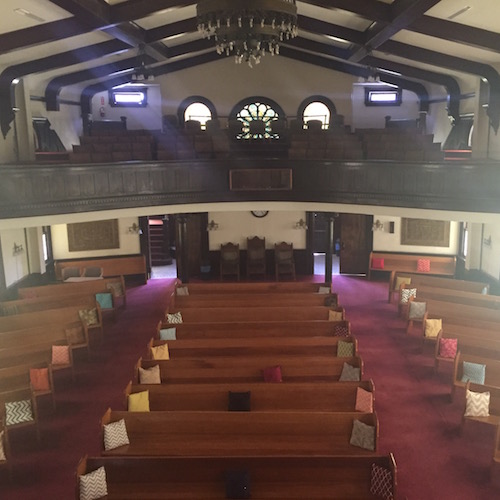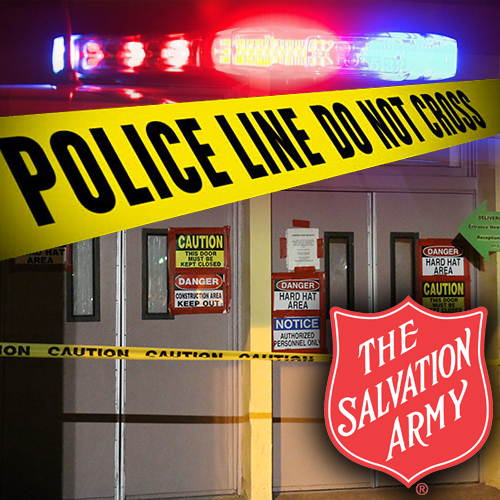Religious leaders in the neighborhood are working to do just that. Gang culture is so far reaching that it affects every part of life…even religion. Churches are fragmented by gang turfs. Gang members aren’t able to cross gang lines to go to church on the other side of town. Thus the entire neighborhood, young and old, is affected by this culture that has a tight hold on the streets of Pico Union.
Religious leaders like Elzinga are using religion to bring people together and cross the divisive gang lines. Religious outreach has taken three vastly different forms in order to combat Pico Union gang culture with full force. These include: youth development, rehabilitation/ministry instruction, and church planting.
Although gang culture scars the entire community, children growing up in this turbulent, violent environment are even more deeply impacted. Ranked 29th out of 209 Los Angeles neighborhoods for violent crime, according to the Los Angeles Times’ Mapping L.A., Pico Union inevitably exposes nearly all children growing up there to some sort of gang violence. Numerous studies have shown that violence of any kind can be extremely damaging and can set children on a bad path from the start. In fact, “children exposed to violence are more likely to abuse drugs and alcohol; suffer from depression, anxiety, and post-traumatic disorders; fail or have difficulty in school; and become delinquent and engage in criminal behavior,” according to a study by the U.S. Department of Justice.”
This early exposure to violence compounded with a lack of parental supervision is a recipe for entrance into gangs. Scott Yetter, pastor for the English congregation of the First Evangelical Free Church of Los Angeles, EV Free L.A., shared that parents were begging him to do something to keep their kids off the streets. Because they work, parents are forced to either leave their children to roam the streets and get caught up with gangs and drugs or they keep them cooped up in their tiny apartments where the children are left to their own devices in a claustrophobic, traumatic environment.
To solve this problem, Yetter created the S.A.Y. Yes! Center for Youth Development, an after school program, through EV Free L.A. It is much more than simply an after school program as each child is paired up with a mentor who works with them beyond the Tuesday through Thursday tutoring and activity hours. The mentors are deeply involved in their family life, follow up with their teachers, and help instill religious roots in these students. “Our goal is to walk with kids in those years from first through twelfth grade. So as they’re going through, when they encounter the abuse, when they encounter the violence they’re walking with someone who believes in them and who’s sort of helping them to cope, helping them to move forward, helping them not to give up, helping them to really realize that they’re created with gifts and with abilities to do things that no one else is going to be able to do,” said Yetter.
The Center started with just 15 students and has developed and sent out hundreds of new leaders into the community. EV Free L.A. as well as other teen centers within Pico Union remain dedicated to youth ministry in order to kill gang culture right from the source.
EV Free LA.Beyond children, religious leaders are working to help those who have already been through gang life and are now trying to get themselves back on track. According to Dr. Bob Lay, Dean of the Urban Ministry Institute of Los Angeles, TUMI-LA, many of his students include those who were caught up in the culture of violence back in the 60s and 70s and are now 50 and 60-year old people ready to move on. “Many of them now spend their time going to schools and talking about the reality of gang violence and the dangers of gang life. And some of them are interested in further training for Christian ministry. They are taking their life experience in the gang and turning it around in order to benefit people,” said Dr. Lay.
One of the largest ministries of the international religious organization, World Impact, TUMI-LA trains 75 to as many as 200 students every semester in Christian ministry. Unfortunately, the high costs of universities keep many people out of religious degrees as well as biblical and theological training. Therefore, the Institute is working to give these people, many of whom are turning their lives around, a chance to prosper.
TUMI.The final, and arguably most impactful means of breaking down gang divides involves literally crossing gang lines. Church planting is very popular in Pico Union and has become a way to meet people where they are, serving and welcoming all regardless of gang affiliations. A current intern of EV Free LA, LeAnn shared that a few people from her church split off and planted a church a few blocks away. “They were working with gang members and with high school students who couldn’t come to church here on Sundays because they couldn’t cross territories because there’s that much tension,” said LeAnn.
Even non-gang members are impacted because they don’t want to be hassled by gang members on certain turfs. Elzinga planted his church, Cross Streets in particular in order to help meet these people where they were at and allow religion to meet the needs of residents that gang culture fill.
Jeff Elzinga
There is much evidence that these methods of religious outreach are working to break down the gang line divides. Youth-wise, Yetter shared that he and his family are no longer going to as many funerals as they were in the past. In fact, his church hasn’t lost a child to gangs in seven to eight years. There is further evidence of transformation according to a local police sergeant who shared with the church that there is even a difference in crime in the blocks around the church as compared areas further away. “There is a cultural change. Kids are growing up in our community and they have role models that they didn’t have before. The gangs are not their role models. They’re looking for acceptance, they’re looking for a place where they belong, a place where they’re loved and…they’re not looking to gangs anymore.”
Many kids have graduated from the S.A.Y. Yes! program and are now out leading the community in their own ways. Former gang members who studied at TUMI are also out leading in the neighborhood and spreading the gospel. Further expansion of church plantings, continued youth development, and a commitment to helping former gang members rise up in society are the recipe for continued progress.
Ultimately, all of these religious leaders share this idea of raising leaders in the neighborhood from the ground up through religion. Dr. Lay put it well in saying he hopes in the years to come to be “surrounded by men and women who grew up here as children under very difficult circumstances…and they’re equipped and responsibly doing that ministry and they don’t need me anymore.” Although gang violence may be a reality today, religion is breaking down gang lines from all angles, transforming the neighborhood for the better.


